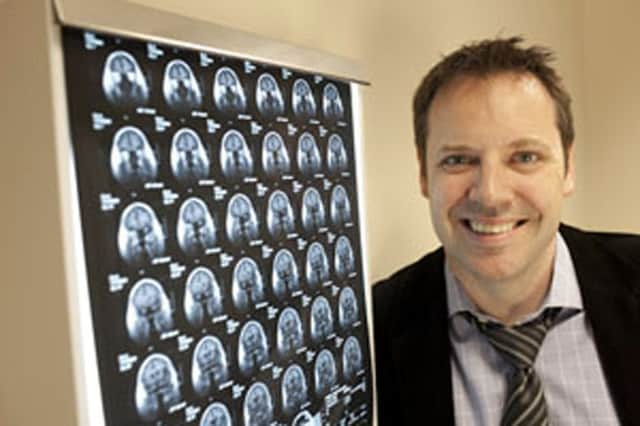£50m research seeks new ways to tackle Alzheimer’s


Scientists led by a team from the University of Edinburgh will attempt to find reliable bio-markers that can be used to spot early signs of the disease.
At the same time, an arm of the study running in parallel will look for drugs that might help those at highest risk.
Advertisement
Hide AdAdvertisement
Hide AdThe strategy will aim to fit particular drugs to patients with specific characteristics, identified through brain scans, genetic make-up, or biomarkers in the blood or cerebro-spinal fluid.
Researchers hope to highlight treatments that can be given long before a patient develops full-blown Alzheimer’s.
The five-year European Prevention of Alzheimer’s Dementia (Epad) project will establish a European-wide register of 24,000 participants.
Of these, some 1,500 will be invited to take part in second-phase drug trials.
Epad coordinator professor Craig Ritchie, from the University of Edinburgh, said: “What we’re beginning to understand is that the disease is probably beginning to develop decades before the onset of symptoms, in someone’s 30s, 40s or 60s.
“We have to see if we can produce a profile of an individual who is more likely to progress and then look for an intervention.
“One of the arguments is if you want to manage the course of Alzheimer’s you have to treat patients at a very early stage.
“Historically, we’ve tended to get everything ready beforehand, fire the starting gun, and just wait. Five years on, we get the data and it’s a case of, ‘Oh damn, it doesn’t work’.”
Advertisement
Hide AdAdvertisement
Hide AdSome drugs that have failed when used to treat symptomatic Alzheimer’s might turn out to be effective at an earlier stage of the disease, the professor added.
It was also possible that drugs currently used to treat other conditions, such as inflammatory disorders, may be shown to combat early-stage Alzheimer’s.
“What we will find out quite quickly is drugs that don’t work, which is really important, because it will help to prevent us wasting time and money,” said prof Ritchie.
“It will probably be another three or four years down the track before we can be sure what drugs are likely to be effective.”
Likely candidate drugs could be catapulted straight from Epad to third-phase trials – the last research hurdle before they are put on the market.
Most of the Epad patients will already have volunteered for previous dementia studies. Some will also be recruited via the UK Biobank, which is collecting blood, urine and saliva samples from up to 500,000 people.
Alzheimer’s patients are known to have abnormal levels of beta amyloid protein in the brain and fibres known as tau tangles in nerve cells.
A gene variant known as ApoE is also strongly linked to the disease.